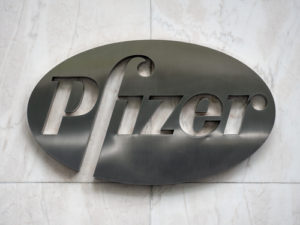Drug and DME Pricing
This archive displays posts tagged as relevant to drug and durable medical equipment pricing. You may also be interested in our pages:
April 2, 2017
Sanofi-Pasteur agreed to pay roughly $20 million to resolve claims it incorrectly calculated drug prices and thereby overcharged the U.S. Department of Veterans Affairs for drugs under two contracts between 2002 and 2011. DOJNovember 21, 2016
Georgia 41 other states filed an amended antitrust lawsuit against the makers of Suboxone, a prescription drug used to treat opioid addiction, over allegations that the companies engaged in a scheme to block generic competitors and cause purchasers to pay artificially high prices. Reckitt Benckiser Pharmaceuticals, now known as Indivior, is accused of conspiring with MonoSol Rx to switch Suboxone from a tablet version to a film (that dissolves in the mouth) in order to prevent or delay generic alternatives and maintain monopoly profits. According to the lawsuit, when Reckitt introduced Suboxone in 2002 (in tablet form), it had exclusivity protection that lasted for seven years, meaning no generic version could enter the market during that time. Before that period ended, however, Reckitt worked with MonoSol Rx to create a new version of Suboxone – a dissolvable film, similar in size to a breath strip. Over time, Reckitt allegedly converted the market away from the tablet to the film through marketing, price adjustments, and other methods. GAApril 27, 2016
Pharmaceutical giants Wyeth and Pfizer, Inc. agreed to pay $784.6 million to resolve allegations that Wyeth violated the False Claims Act by reporting to the government false prices on two of its proton pump inhibitor (PPI) drugs, Protonix Oral and Protonix IV. Under the state Medicaid programs, drug companies must provide Medicaid rebates based on the best prices they offer other customers. According to the government, Wyeth hid from Medicaid bundled discounts it provided to thousands of hospitals across the country on Protonix Oral and Protonix IV. By failing to report these bundled discounts, Wyeth allegedly avoided paying hundreds of millions of dollars in rebates. The allegations originated in a whistleblower lawsuit filed under the qui tam provisions of the False Claims Act by Lauren Kieff, a former hospital sales representative for AstraZeneca and William St. John LaCorte, a physician practicing in New Orleans. They will collectively receive a whistleblower award of roughly $98 million from the proceeds of the federal and state settlements. Whistleblower InsiderDOJ Catch of the Week -- Wyeth/Pfizer
Posted 04/29/16
 By the C|C Whistleblower Lawyer Team
This week's Department of Justice "Catch of the Week" goes to the pharmaceutical giants Wyeth and Pfizer, Inc. On Wednesday, the companies agreed to pay $784.6 million to resolve allegations that Wyeth violated the False Claims Act by reporting to the government false prices on two of its proton pump inhibitor (PPI) drugs, Protonix Oral and Protonix IV. These drugs are...
By the C|C Whistleblower Lawyer Team
This week's Department of Justice "Catch of the Week" goes to the pharmaceutical giants Wyeth and Pfizer, Inc. On Wednesday, the companies agreed to pay $784.6 million to resolve allegations that Wyeth violated the False Claims Act by reporting to the government false prices on two of its proton pump inhibitor (PPI) drugs, Protonix Oral and Protonix IV. These drugs are...